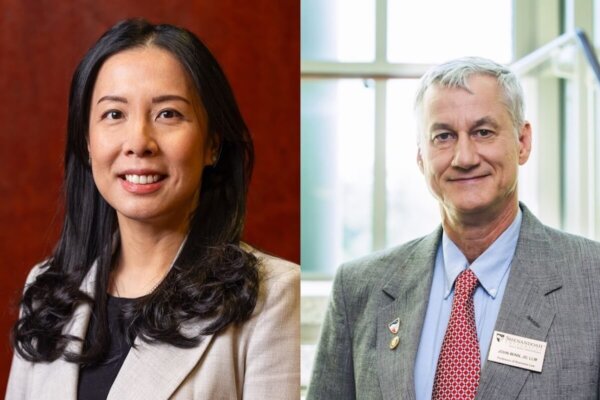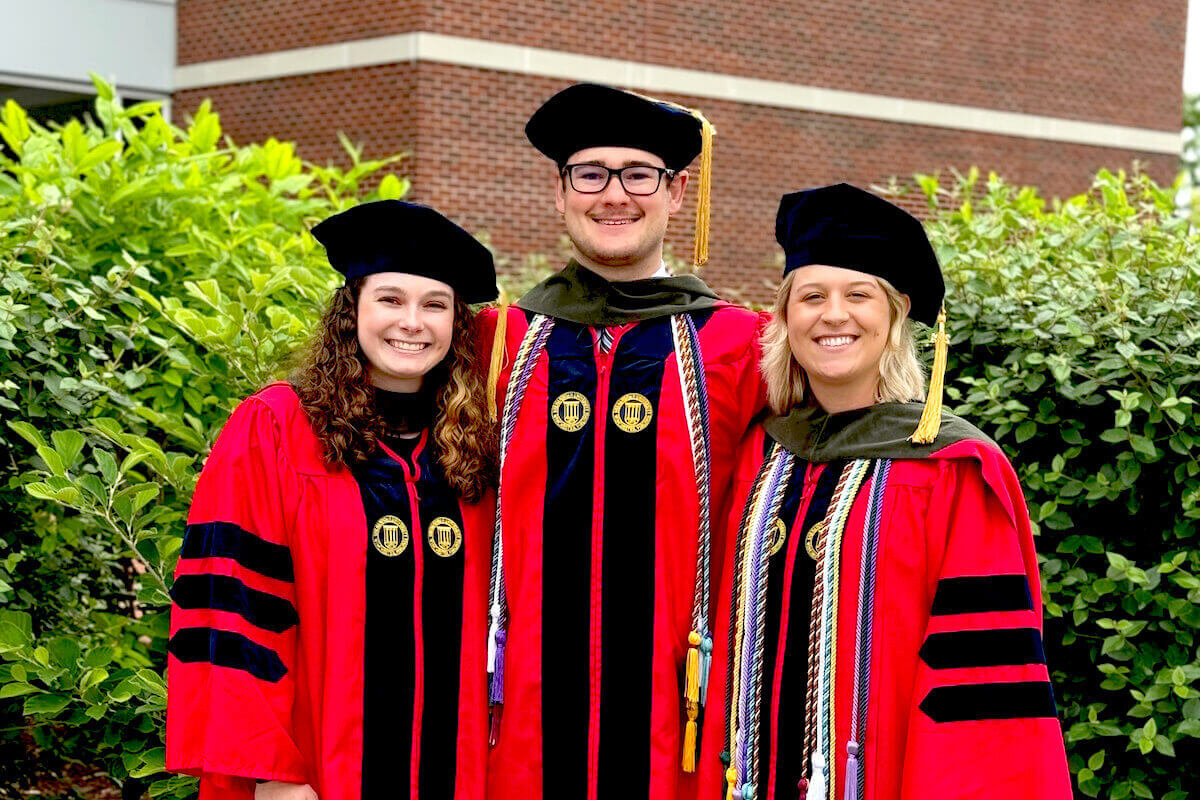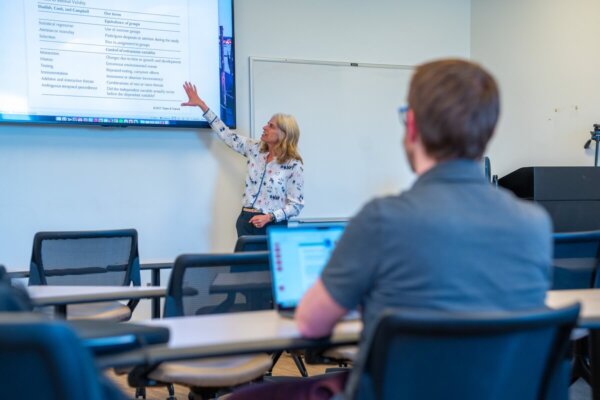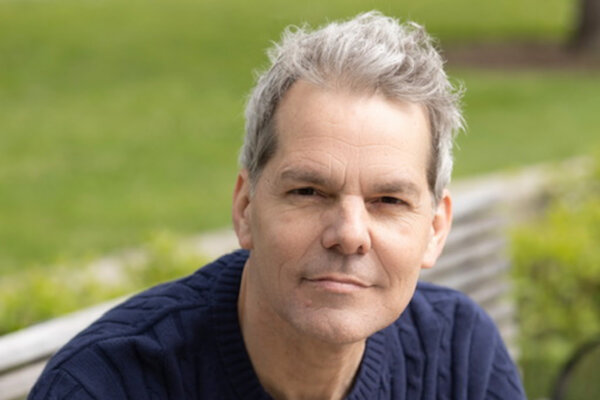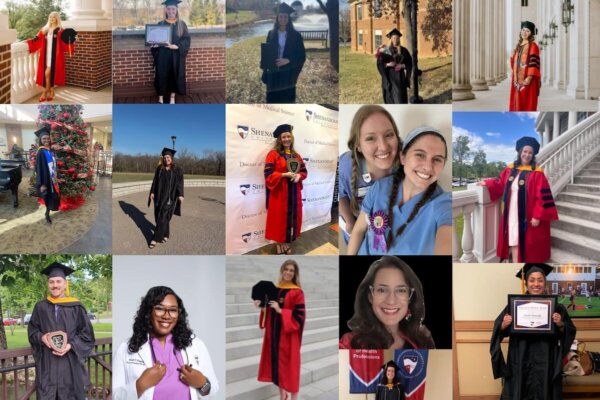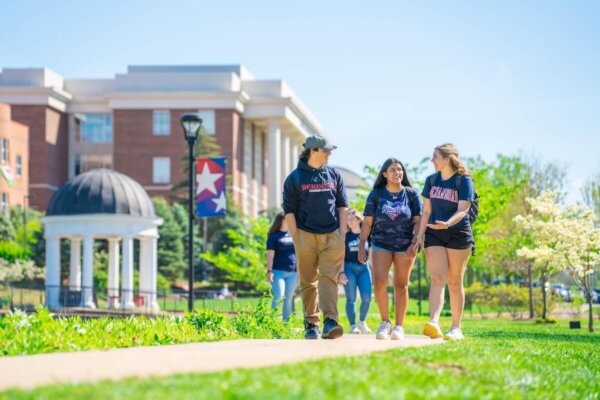Divine Takes On Role With Pre-Health Education
Alumna & Assistant Professor of Physical Therapy Brings Passion for Advising to Pre-Health Education Program
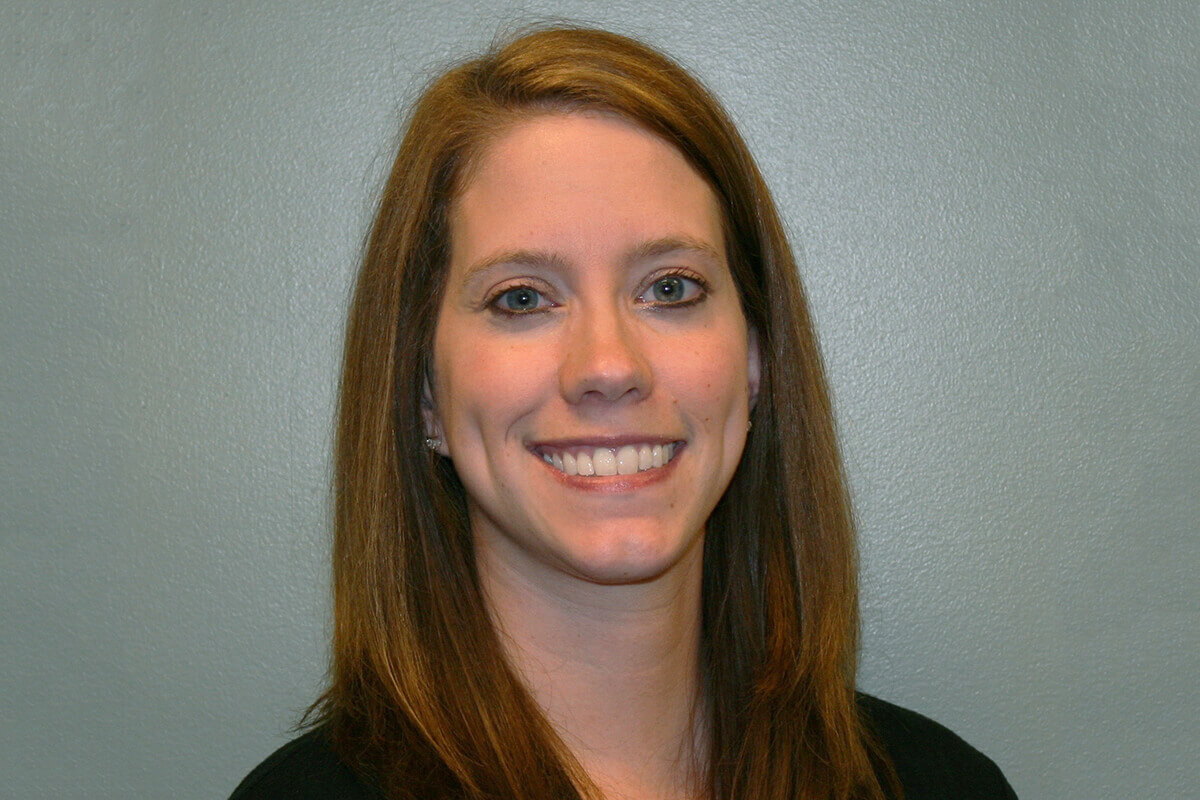
Shenandoah University’s College of Arts & Sciences pre-health program has a new director of pre-health education, Assistant Professor of Physical Therapy Kate Divine ’08, ’10, PT, DPT, WCS, CLT. Dr. Divine took on the role after the previous director, Anne Schempp, Ed.D., PA-C, moved into being interim director of Shenandoah’s Division of Physician Assistant Studies.
I was excited to have the opportunity to take on the role of director of pre-health because one of my favorite parts of teaching is advising students. Many students come into undergraduate studies with dreams of what they hope to accomplish, but often don’t have a road map of how to achieve that dream or how to navigate if that dream changes. Advising, to me, is a form of teaching. I enjoy facilitating student reflection and providing tools and strategies to help students develop into a health care professional. It’s very rewarding to guide and teach the next generation of health care professionals.”
Kate Divine ’08, ’10, PT, DPT, WCS, CLT
The pre-health program guides students as they develop as competitive applicants to graduate schools. It helps students find a graduate program that matches their academic and pre-professional profile, offering additional support in three areas: curriculum and coursework, pre-health advising, and pathways to the graduate health professions. “It’s important to have a program that supports students on their journey to get to graduate school,” Divine said.
Pre-health students take the same courses, foundational to the health professions, together, allowing instructors to focus on the particular requirements of students interested in pursuing further studies that range from medical school, veterinary studies and dentistry to physical therapy, occupational therapy, physician assistant studies, pharmacy and more. The most common majors among pre-health students at SU are biology, chemistry, exercise science, psychology and public health, Divine said. The program recommends that students approaching graduation apply to five or six graduate programs, as well. “We have students go onto graduate school all across the country.”
Richard Grove Pardo ’15, M.D., took his Shenandoah experience with him to Ross University School of Medicine and his current role as a first year psychiatry resident at Lewis Gale Medical Center in Salem, Virginia. Dr. Pardo engaged in a multitude of extracurricular activities at Shenandoah (including being captain of the baseball team) while also earning a biology degree.
All of these things encouraged me to manage my time appropriately to maintain the grades needed to be accepted into medical school.”
Richard Grove Pardo ’15, M.D.
Divine said her years of experience as a health care professional and educator, in which she has worked alongside a variety of health care professionals, help her not only to assist students, but also to “light a fire” for them. “One big key to success in a healthcare field is being passionate about what you do,” she said. “Graduate school for health professions is very challenging and students need that motivation and drive to succeed.”
This motivation comes from several directions. “Students have very knowledgeable and experienced academic faculty advisors that support and guide them throughout their time as undergraduates,” Divine said. They also have classmates who share similar goals. “Surrounding yourself with others who have high hopes and expectations will help keep you motivated and striving for the same high standard,” Divine said.
“It’s important for students to have support not only from their faculty, but also from their peers to be successful,” Divine added. Dr. Jessica Peacock has also created an optional mentorship program for students in the Colleges of Arts and Sciences. “I strongly encourage all pre-health students to take advantage of this program (both as a mentee and a mentor). Peer-to-peer mentorship and support is so important.”
Such a personal touch makes a great deal of difference in the professional world.
I feel that the culture at SU helped me grow into the physician I am today. Once you finish medical school and start working as a resident you find that that being a good physician is a lot less about how much you know and a lot more about how you connect and interact with patients from all different backgrounds and cultures. I think SU really promotes an atmosphere that encourages you to step out of the comfortableness of your own culture/belief system and allows you to grow as a person. I also felt that the smaller class sizes also allowed me to connect with staff that were supportive and pushed me to grow as a person as well. The staff was much more available to answer questions and to mentor you as opposed to a larger university.”
Richard Grove Pardo ’15, M.D.
As Divine guides pre-health students, she’s also still teaching part time in the Division of Physical Therapy.
I try to divide my time equally between both positions. It can certainly be a lot to juggle, but I feel my prior and current experience in the physical therapy graduate program provides me with knowledge and skills to promote collaboration across the university. I am a 2008 and 2010 Shenandoah graduate and have a great perspective from the student side and faculty side, which I think provides me with a good understanding of the culture of SU. I hope to instill an appreciation of Shenandoah’s collaborative, supportive, ‘feels like home’ culture in my students, as well.”
Kate Divine ’08, ’10, PT, DPT, WCS, CLT
